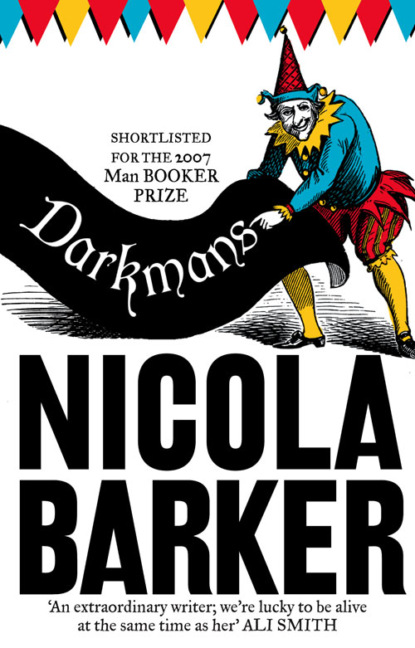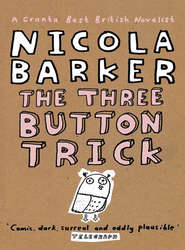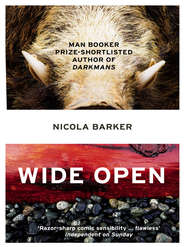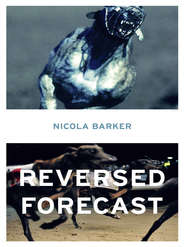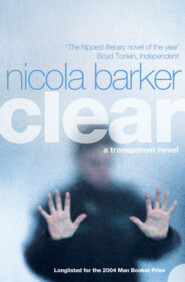По всем вопросам обращайтесь на: info@litportal.ru
(©) 2003-2024.
✖
Darkmans
Настройки чтения
Размер шрифта
Высота строк
Поля
He touched his fingers to his pounding temples.
The Romanian did not move. Kane tapped him on the shoulder. ‘I said just shift…’
The Romanian sprang around. ‘What are you?’ he demanded. ‘Some kind of imbecile?’ Then, ‘You! Go!’ he insisted, flapping Kane away as if he were some kind of vile bluebottle.
‘Go where?’ Kane tapped his index finger against his own chest. ‘This is where I live, you moron. This is my home.’
Kelly attempted to struggle up again.
The Romanian turned – ‘Idiot girl!’ – and firmly pushed her back down.
‘Ow!’ she expostulated, plaintively, as her bony arse made contact with the stone step.
At the sight of the Romanian manhandling Kelly, Kane completely lost it. He grabbed him by the shoulders – as if to spin him around again – but the Romanian was already moving smoothly of his own volition, and as he turned, his right fist turned with him. He punched Kane in the chest with it, then followed through with a hard left to his gut. They were powerful punches.
Kane doubled over with an embarrassing squeak. He saw the Romanian starting to lift his knee, then hesitating, as if re-considering delivering him a swift kick to the groin area (although it was still very obvious – even to him – that if the Romanian had seriously wanted to finish him off, he probably already would’ve. Those were amazing punches for a man of his stature – he was 5' 5" at a push).
Kane remained down for a few seconds (catching his breath, consolidating, thinking this all over), before his watering eyes finally settled on the steaming coffee Thermos (Ye Gods! A gift!), and, quick as a flash, he’d grabbed it, straightened up, and thrown the contents into the Romanian’s face.
The Romanian screamed. Kelly screamed (she was splattered, and the Romanian staggered sideways, accidentally knocking into her). Kane dropped the Thermos and heard the glass break inside of it (he took an active – almost adolescent – pleasure in the sound of its fracturing).
The Thermos had been open for some minutes and the coffee wasn’t exactly boiling, but it was hot enough. The Romanian was scalded, yet seemed far more concerned by the damage to his clothing. He was hopping mad.
‘This is my work shirt!’ he yelled, pulling the still-steaming fabric away from his hairy chest, gesticulating wildly. ‘You have ruined me!’
Kane suddenly started laughing. It was a hoarse laugh (he was winded). He pointed, weakly, at the ruined shirt (it was hardly the most glamorous-looking garment he’d ever laid eyes upon). The Romanian, meanwhile, had noticed his damaged Thermos. He snatched it up from the paving, almost howling.
‘My Thermos!’ he wailed (his pronunciation of the brand-name was – even to Kane’s ears – rather endearing). ‘What have you done?’
At this point a second man arrived; another entry-phone engineer, potentially the Romanian’s senior. He had Kelly’s two lurchers with him.
‘What’s going on?’ he asked the Romanian. The Romanian didn’t answer. Instead he took the Thermos – his knuckles white with fury – and threw it, violently, against the nearest windowpane. The window – it was a large, double-glazed one – chipped but did not shatter.
Even so, the second entry-phone man was visibly alarmed by this display. ‘Gaffar,’ he gasped, ‘are you off your fuckin’ head?!’
Gaffar stood his ground, his arms at his sides, breathing heavily (like the Invisible Hulk, transforming), his fists clenching and unclenching (‘the glass hasn’t shattered, dammit’ – his eyes were screaming – ‘so now I might be obliged to hospitalise somebody’). ‘That’s not even my window,’ Kane said, still chuckling, still limply pointing, like everything was a joke to him.
The second engineer glanced down at Kelly. ‘You all right there, love?’
Kelly nodded. Her eyes were closed now. She was resting her head against the door. Her face was very pale. One of the lurchers nuzzled her open hand. At its tender ministrations she emitted a gentle groan.
In the midst of all his hilarity, it finally dawned on Kane that she might not actually be bullshitting him about the fall. Had she fallen? He peered down at her, properly. He blinked (it was almost as though he hadn’t seen her there before –
Kelly?).
His mirth evaporated. A shattered piece of shin-bone was poking out – like a discarded lolly stick – through the tight, smooth flesh just underneath her knee. The lower half of her leg was purpling and swollen to almost twice its normal proportions. Her trainer was off (lying on the ground nearby, next to her slightly mangled-looking Nokia). If her foot was a balloon, then it’d been pumped too full of air (looked like some kind of zeppelin sent up to advertise a discount shoe-store; or one of those themed lilos which kids loved to bob around upon, in the hotel pool, on holiday).
It was gruesome. As a boy Kane suddenly remembered shoving a piece of driftwood into the heart of a beached-up, blue-white jelly-fish (to see if it was alive, to see how it would react). That was her leg – what it reminded him of –
Christ –
What a cruel child I was
He glanced over at the Romanian. The Romanian was standing exactly as before (arms down, fists clenched, breathing, breathing). His cheeks were wet – were shiny – with remnants of the coffee. In the distance Kane picked out the insistent bray of an ambulance –
Hee-haw!
Hee-haw!
Oh shit.
If the Romanian had punched him again – right there, right then: square in the face – he would’ve considered it an act of the most extreme beneficence.
His full name was Gaffar Celik and he wasn’t Romanian. He was a Kurd. He had just turned twenty-four. He was born in a poor town called Silopi, in Turkey, on the Iraqi border. His father had died – when Gaffar was only three – working as a Village Guard in a private army under the control of a Kurdish feudal lord. His mother had then taken them eastward (Gaffar, and his younger brother), first to Marlin (to stay with her widowed father), then on (when he passed) to be with her sister, in the beautiful mountainous village of Hasankeyf.
Hasankeyf was a kind of tabernacle to Kurdish culture (40 miles from Batman, straddling the Tigris River), and the sister was married to a man whose paternal line had found gainful employment for over twelve generations guiding tourists around the ancient sights there (the legendary caves, the remains of the old bridge, the magnificent obelisk, the beautiful, stone archway).
But few people visited them any more. The Turkish government had plans to flood the town as part of the Llisu Dam project, and so, gradually, one by one, the tour operators had wiped them from the cultural map (the south east had always been a difficult area). The decision – they insisted – was in no way political (to systematically flood all significant Kurdish landmarks? But what, they asked gently, was remotely contentious in that?).
Sometimes Gaffar felt like they were already submerged (there just wasn’t actually any water, yet), that they had been abandoned, betrayed, cut off. But he was not bitter (had no time for bitterness). He merely felt a dreamy nostalgia (for a non-existent future), coupled with a tender, almost poignant, regret.
Occasionally – and with scant warning – things could turn nasty. Battalions of Turkish soldiers would suddenly descend upon them, en masse, and burn down people’s homes (frighten them, move them on, accuse them of insurrection, of supporting the PKK and the Kurdish Revolution). Gaffar’s family were just one among many (the working estimation stood at 70,000) to be methodically oppressed (and displaced) in this way. Eventually it all got too much and they fled north, to Diyarbakir: Town of the Black Walls, where – for a short while, at least – they felt a little more secure.
Gaffar’s mother was a devout woman (especially since his father’s passing. You might almost think – Gaffar sometimes thought – that she was ‘making up’ for something). She was a follower of the Alexi Sect (Alexi was Mohammed’s brother-in-law; they were Shi’i, and persecuted – for radicalism – by the Sunni majority). Gaffar gave every appearance of conforming to this belief system. He had an actual, a palpable genius for pretending. Pretence was an essential part of his inheritance, of his pathology. He was proud of his duplicity (he didn’t have much, but at least he had this; he owned it. It was his).
There was a secret, you see, about his father – something shameful and unspeakable – which, even when he was alive, they only talked about in whispers. And now that he was gone, it was either never mentioned or hotly denied. But it was still true, nonetheless.
His father had been a Dawasin, one of the Yezidis; the oldest and most singular of all the Kurdish tribes; a reclusive, secretive, clannish people who worshiped Malik Taus, the Peacock Angel. They believed that they were the last remaining direct descendants of Adam’s line, that their race (and their race alone) was unbesmirched by the sins of Eve. They were pure (this was part of their patrimony), but they were not ‘of the Book’ (at least, not formally), and so, even amongst Kurds, they were both feared and despised.
Gaffar’s father had been born in Sinjar, on the Syrian/Iraqi border (it was the Kurdish lot to be born on the edge of things, the perimeter; to be squeezed into the outer reaches; at worst to be persecuted, at best loathed and ignored). In 1975 the Dawasin in that area had been forcibly evicted from their land and placed into collectives.
Times were hard. He had drifted to Baghdad, searching for work. He’d left a wife and a daughter behind him, staying away – out of desperation (or so he claimed) – for many months in conjunction. In Yezidi culture absence was a crime of excommunicable proportions. And there was no coming back from it. So after a while, he didn’t even try. His soul was lost from that point onward.
As if to underline this fact, categorically, he journeyed north, to Irbil, and became a denizen of the legendary Sheikhallah Bazaar, where he hired himself out as muscle in the trade of drugs, fake passports and illegal arms. He moved to Turkey on the back of his successes, changed his name (stole ‘Celik’ from a local mayor), converted to Islam and married Gaffar’s mother.
He’d wanted (he claimed) to leave his former life behind. He even said he’d seen Jonah (Yunus) in a vision, where the whale was not a sea creature, but an enormous tent (a living thing, somehow, with ribs and teeth and organs), and it was crammed – full-to-bursting – with people he’d known in the past (his old friends, his enemies, his compatriots), and they were all slowly suffocating. But his own chest was full of air (like he was the whale, or the lungs, or something), and Jonah, on observing this fact, reached out his hand to him, and they walked clear – clear of the tent, of the bazaar – into a world beyond, into a promised land.
An epiphany.
Or this was the mythology. The truth was much simpler. Things didn’t actually change all that much in Turkey (I mean the Kurds were persecuted everywhere, weren’t they?). The fabric of his life remained virtually identical. He’d simply crossed over (or turned inside out, like a polythene bag). He was on the other side, now, but the leap he’d made wasn’t gargantuan (like Jonah’s whale), and it wasn’t so much moral (or spiritual) as geographical.
He remained a soldier (but now paid by the state). The Guard were universally loathed. They were cruel and merciless. Some were just desperate, others, crass opportunists. Gaffar’s father was ruthless, but not actively sadistic. He dispatched his duties efficiently. He took the occasional back-hander. He still thought like a traitor. And when he died (suddenly, on a landmine) his reputation was a distinguished one. He’d been fearless and brave and single-minded. He’d conformed. He’d fitted in. He was remembered by his compadres as an honourable man.
Gaffar sometimes wondered where his soul had gone (I mean which of the deities he’d served was the more forgiving, the more powerful?). It was a telling thought: but weren’t all true nomads at their happiest in limbo?
Was God actually aware of that fact?
As he grew older it became increasingly apparent that Gaffar had fighting in his genes (in his bones, which he broke, then re-set, then broke again). It wasn’t that he was angry (quite the opposite). His strength was rooted in his curious implacability.





